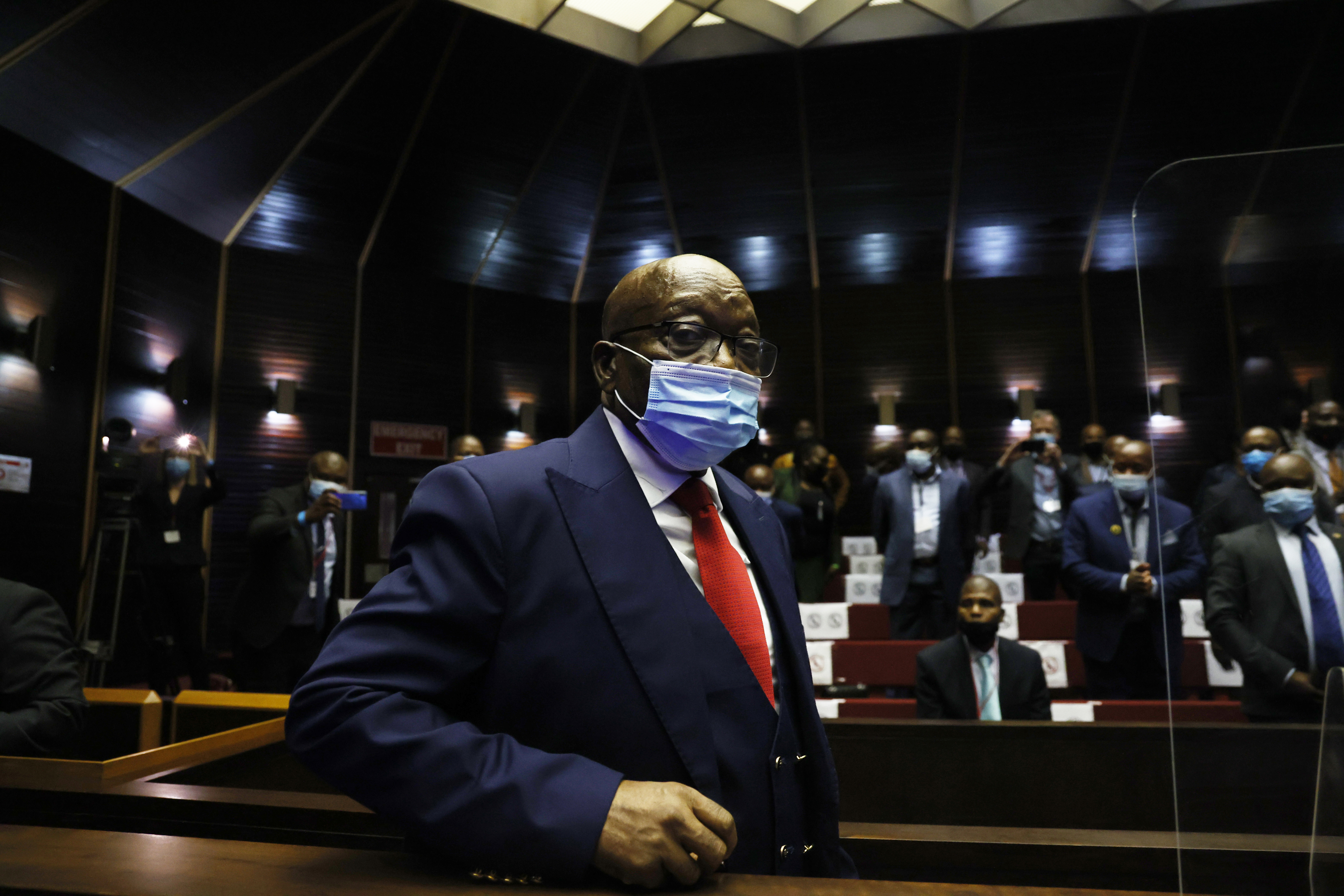South Africa
The story of Jacob Zuma and Al Capone

Just like Al Capone went to prison for tax evasion instead of murder, Jacob Zuma is now going to jail for contempt of court instead of stealing his country blind and trying to destroy democracy.
On Tuesday, South Africa’s apex court found former President Jacob Zuma to be in contempt of court and sentenced him to a term of 15 months imprisonment. The Constitutional Court’s decision is a resounding affirmation of the supremacy of the Constitution and the rule of law. The court’s message is crystal clear: all are equal before the law and subject to its sanctions, even a former president.
South Africans have been wondering for a while now whether - and the more hopeful among us have been wondering when - Jacob Zuma would find himself behind bars. During the years of his presidency, from 2009 to 2018, South Africa suffered a period of ‘state capture’. The term references the exercise of control over the state so as to use it for corruption, fraud, nepotism, and the hollowing out of pivotal democratic institutions so as to avoid criminal prosecution and punishment. Significant parts of the state were subject to politically powerful patronage networks that plundered the state and have left it severely weakened.
With the accession to power of President Ramaphosa, in 2018, the great majority of South Africans have been awaiting the investigation and prosecution of the perpetrators of state capture, including Mr Zuma. This has been a painfully slow process. But, as a result of court proceedings, Mr Zuma, when President, was forced to appoint a Commission of Enquiry headed by a judge of the Constitutional Court to investigate state capture. This commission, known as the Zondo Commission, has been holding hearings for some years now, and hearing evidence of the undermining and looting of state institutions.
Mr Zuma was called to appear and testify before the commission. He did so, but unsuccessfully sought the recusal of Justice Zondo, and then left the commission without being excused. This led the commission ultimately to obtain an order from the Constitutional Court requiring Mr Zuma again to appear before the commission. Mr Zuma refused to do so, in blatant defiance of this order. The commission then approached the Constitutional Court to hold Mr Zuma in contempt of the order of the Constitutional Court and apply a sanction of imprisonment. Mr Zuma declined to appear before the Constitutional Court to defend himself against the contempt charge. And on Tuesday, the Constitutional Court held Mr Zuma to be in contempt and sentenced him to 15 months of imprisonment.
The Helen Suzman Foundation (HSF) - a long-standing and close partner of the Friedrich Naumann Foundation for Freedom (FNF) - was admitted by the court to this court case. For over a decade, the HSF has been fighting against the erosion of state institutions in the courts
over many years. The judiciary was the one institution of the state that stood firm on Constitutional principles when these were directly under assault.
The HSF ran its major landmark cases long before political commentators and analysts even realised that what was unfolding was a deliberate and strategic attack on democratic institutions which has now become known as state capture. The HSF’s fight to protect and promote the rule of law and those institutions that carry out the rule of law has been long, dangerous and difficult. But - as one can see from the highest court’s latest judgement - it sure paid off.
The central importance of the judiciary in South Africa and their steadfast enforcement of the rule of law has yet again been evidenced by Tuesday’s decision of the Constitutional Court. Critical to the role that the courts have played in securing the integrity of democratic institutions are the many cases brought by civil society organisations such as the HSF.
